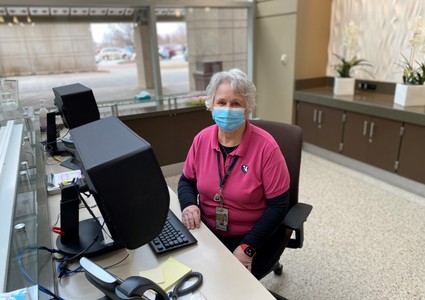
Unsung Heroes of COVID-19: Screeners and Greeters ‘Set the Tone’ as the Faces of Hospitals
Published: Feb. 17, 2022
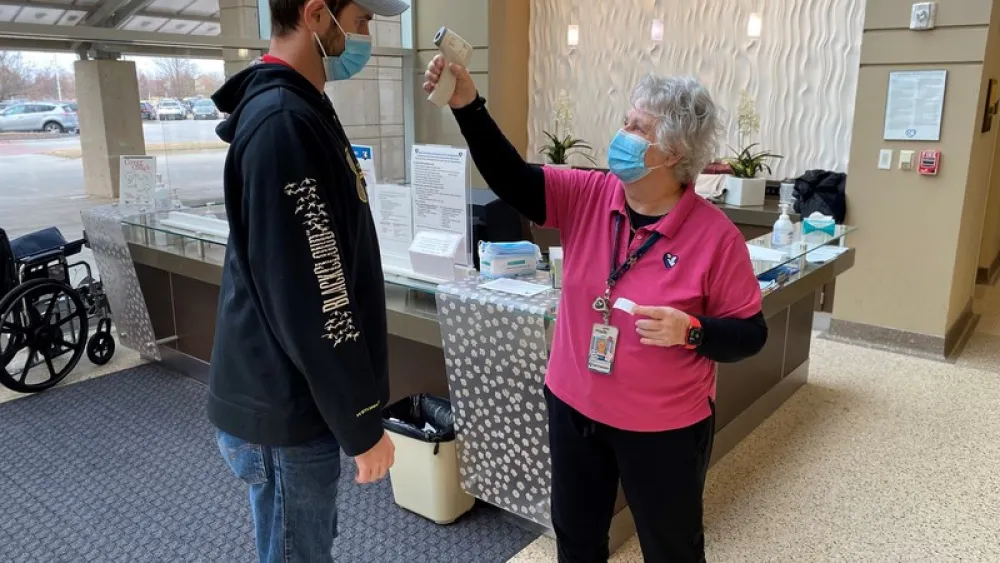
You may not know their names. Your encounters with them are likely brief. But screeners and greeters play an important role as the first and last people many patients and guests interact with in hospitals across Methodist Health System.
Adjusting to New Responsibilities
Prior to the COVID-19 pandemic, the role of greeters appeared straightforward. They interacted with patients and visitors to help them feel welcome, comfortable and confident in where they were going.
According to Helen Moffett, an information desk associate – or greeter – at Methodist Women’s Hospital, the job seemed to go like clockwork when she started three years ago. That quickly changed when the pandemic hit.

Added responsibilities included asking anyone entering the building about COVID-related symptoms or possible exposures, taking temperatures and informing visitors of the ever-changing visitor policies. One of the main goals of screening was, and still is, to decrease the spread of any possible sickness and protect vulnerable hospital patients – such as those with cancer, pregnant women and babies in the Neonatal Intensive Care Unit (NICU).
“The main thing is that it’s for everyone’s safety,” said Abby Soener, a greeter at Methodist Hospital. “We don’t do it to be mean.”
This new screening process caused quite a stir among patients and visitors. Moffett said she had to learn how to deal with various reactions when telling visitors about the latest policies.
“A greeter’s job is to find a friendly compromise and explain to them that until things change, this is what we have to do,” she said. “We understand that they want to be with their family, and we want them to be with their family, but right now it’s just not something that is allowable.”
“You Set the Tone”
With the increased role of greeters at the hospitals, Methodist started hiring screeners to help ensure that people arriving are properly wearing masks, not experiencing any COVID-related symptoms and understanding the latest visitor guidelines.
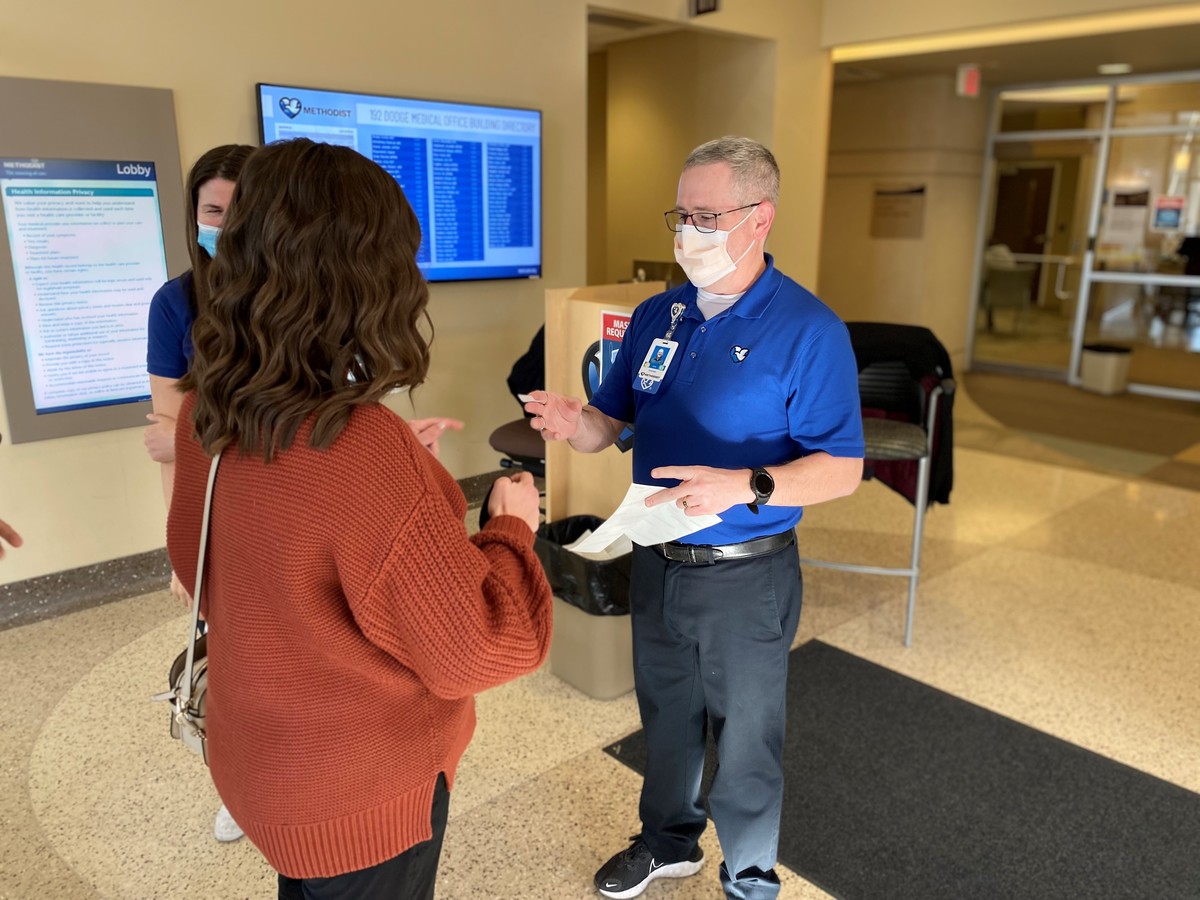
Ivan Weaver, who worked as a screener at the Methodist Women’s Hospital Medical Office Building, knows the importance of being the first person that people see when they arrive for an appointment.
“That’s a very important role to have,” said Weaver, now a patient access professional at West Dodge Medical Plaza. “You have to have a positive attitude and a smile on your face. You set the tone for the visit.”
For Weaver, one of the most rewarding parts of the job is getting to know people who visit the hospital regularly.
“I love the relationships that I’m building with patients over time,” he said. “We have a lot of repeat people that come in. It’s neat to build a relationship with our patients.”
Lara Waugh, who has been a screener at Methodist Jennie Edmundson Hospital since August 2020, keeps a friendly smile on her face as a way to help ease any anxiety that someone may be experiencing as they enter the hospital.
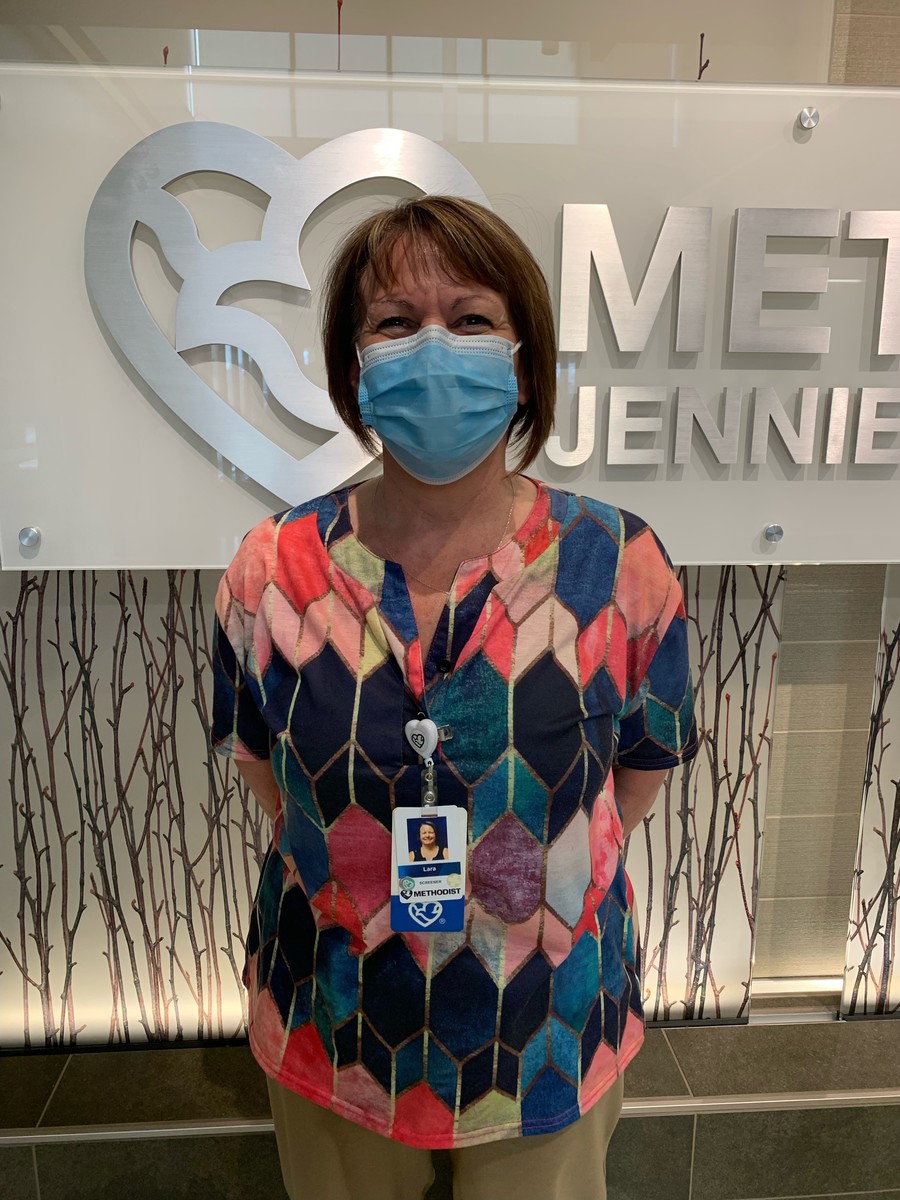
“Giving them a ‘Good Morning!’ greeting can help them calm down a little bit as they’re coming in when they might be worried,” she said.
And like Weaver, Waugh finds delight in seeing the same people for different visits, including oncology patients who may come in weekly or multiple times during a week.
“There are a lot of people that you get to know, and you get to greet them by name,” Waugh said. “I enjoy it very much.”
Challenges of the Job
Even though screeners and greeters attempt to provide a positive first impression, some patients and visitors express frustration when questioned and given restrictions.
“As a greeter, you have to be someone who can smile when someone is cussing you out,” Moffett said.
She said she has developed the skill of biting her tongue and smiling at the same time to avoid adding to any flaring tempers.
If a situation starts to get out of control, greeters and screeners have resources. They can call a house supervisor to further explain why certain restrictions are in place, and security is available at a moment’s notice to assist with aggressive behavior.
This team approach is necessary to ensure that everyone – staff members, patients and visitors – can feel safe at the hospital.
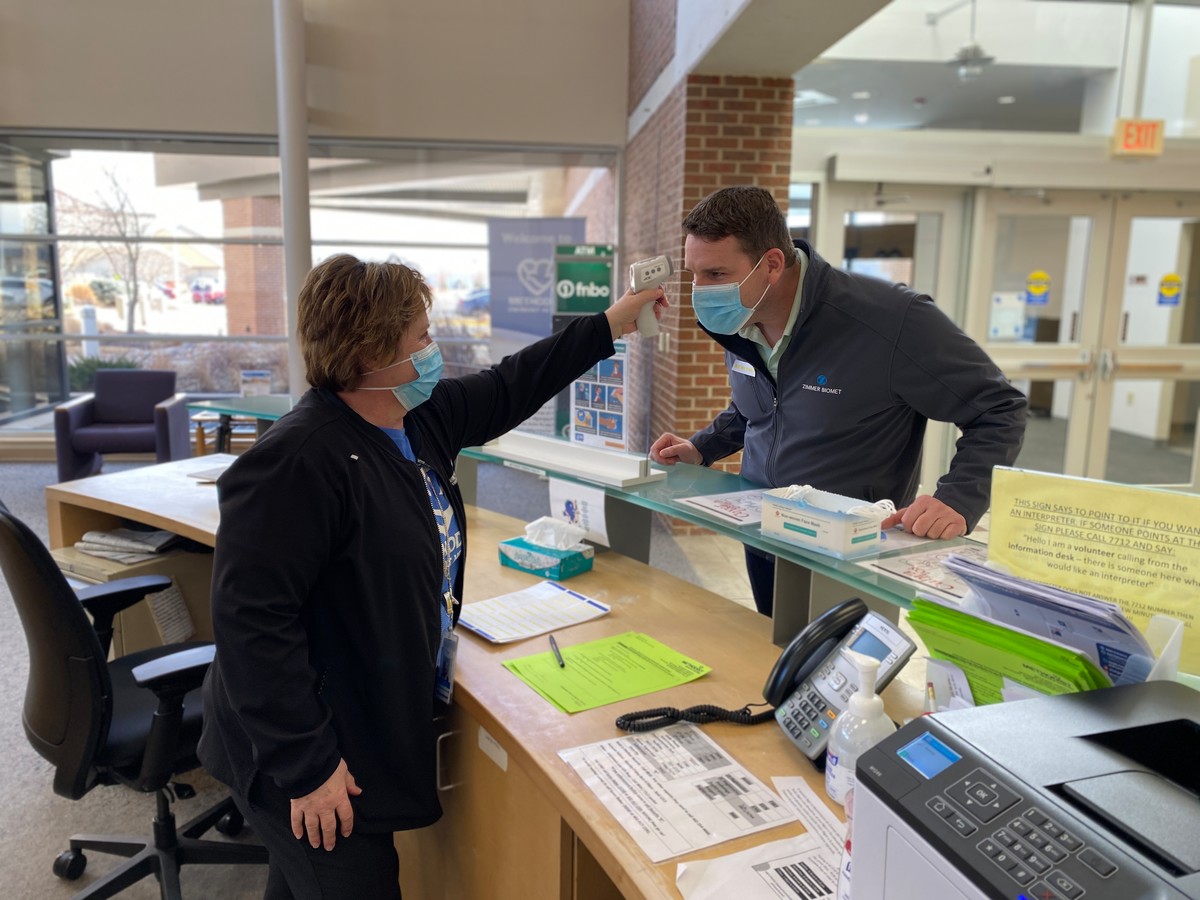
Diane Lindstrom, a greeter at Methodist Fremont Health, knows that her backup isn’t far away.
“I have very good support,” she said. “They know when I need help, or I can always call upstairs to the floor and have the nurse explain to them why they can’t all go up there.”
According to Sunil Acharya, manager of patient access at Methodist Hospital, the job of greeters and screeners is pretty tough.
“The people who come in are stressed and not really wanting to be at the hospital,” he said. “And they have to answer questions that they don’t want to.”
Soener added: “One of the things I try to remember is that people aren’t coming here because they want to be here. They’re here for their own reasons. They’re either here for their own health or their loved one is sick, so they’re emotional already. They have a lot going on in their life, and I don’t try to take it personally.”
Moffett noted that while it can be challenging, her responsibilities are important.
“My role is to make sure that the hospital’s policies are followed,” Moffett said. “It’s not always easy to do that, but that’s our job and that’s what we were hired to do.”
“Part of the Team”
While no one can predict how long the COVID-19 pandemic will have an impact on the community, the role of screeners and greeters has become essential. And the role of screeners may have seemed temporary, but Acharya said they’re now “part of the team.”
When extra shifts have been left open because of scheduling conflicts, some clinical staff members have stepped up and filled in.
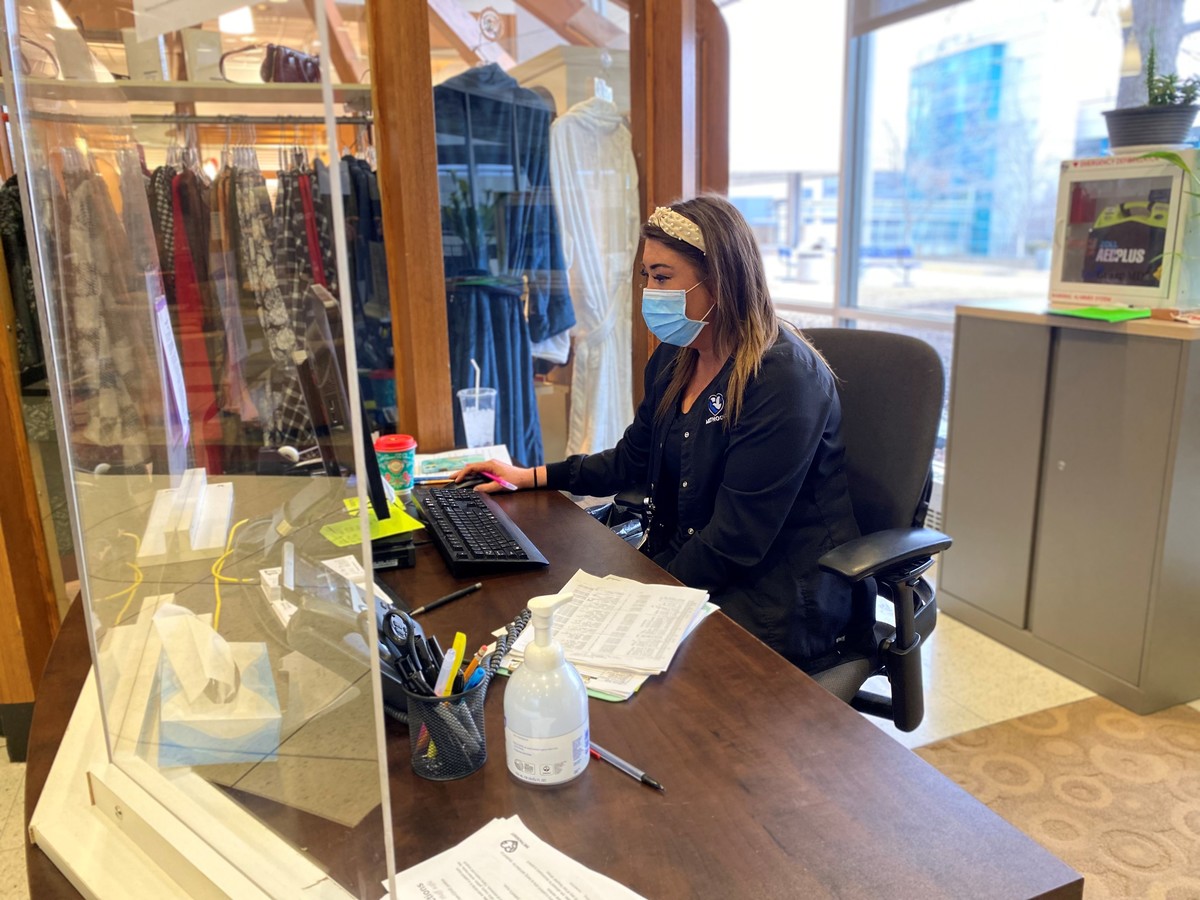
Additionally, high-schoolers and college students have been hired temporarily during the summer and evenings to help.
Acharya said that finding people to fill the roles of screeners and greeters at each hospital location has a lot to do with the guidance and support of supervisors and team leaders throughout the health system.
“We’re pulling it together to make it happen – from all directions,” he said.
Moffett, who owns over three decades of experience in health care, knows a thing or two about being a part of the team at a hospital. She spent time as a secretary in a nursing office, worked in an emergency department and even served as personnel director at a hospital in a Chicago suburb. But her role as a Methodist greeter has provided a new opportunity.
“It’s been a real challenge, but it’s been one of the most enjoyable jobs I’ve had in the 30 years that I’ve been in health care,” she said.
More Resources
- Find a Methodist location close to home.
- Read similar articles on Methodist’s Unsung Heroes of COVID-19.
- Read more articles in our COVID-19 section.


